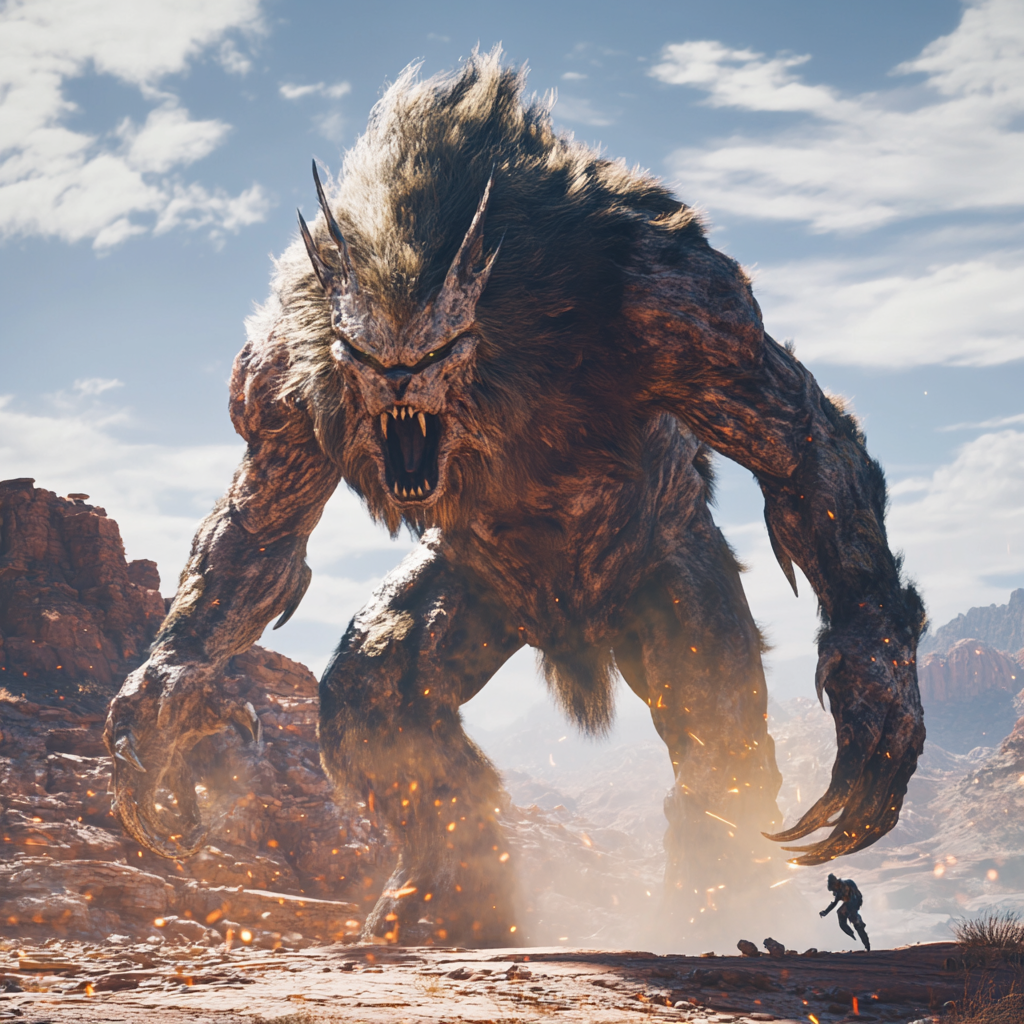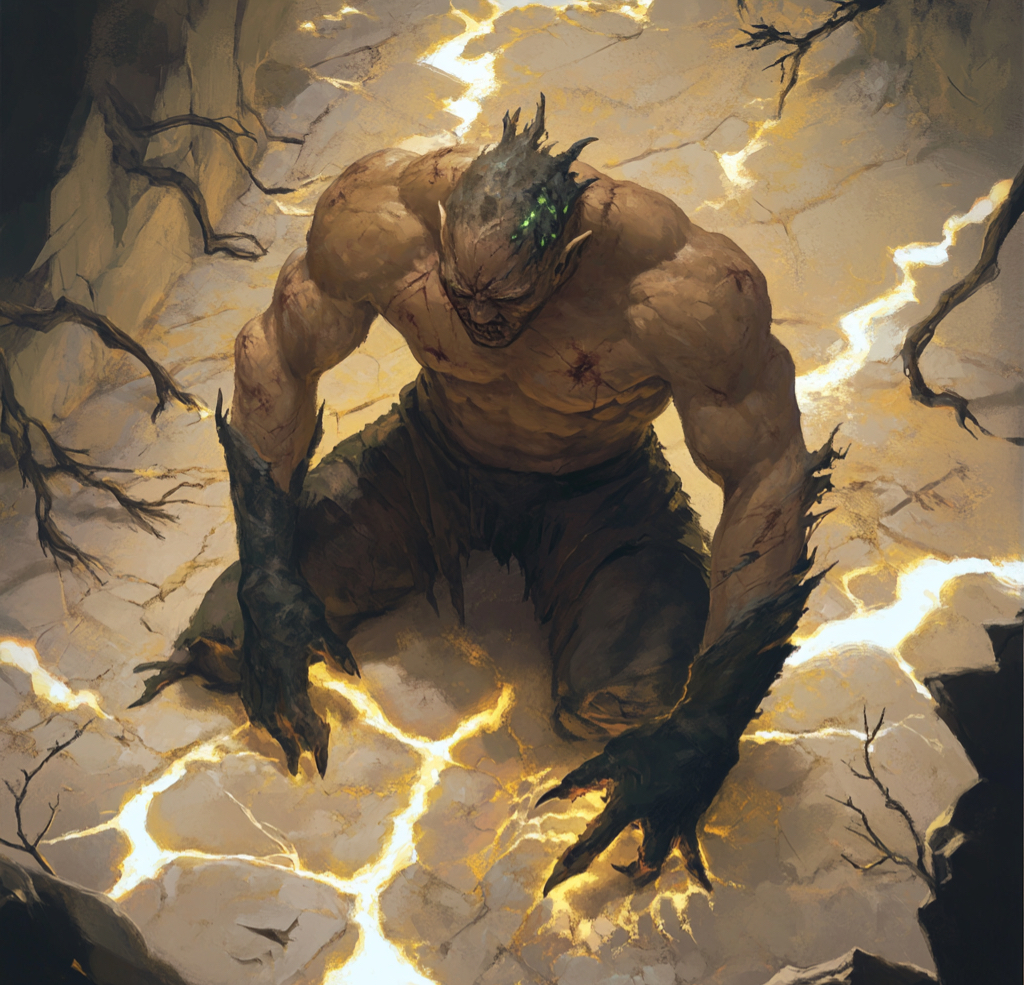Wurmari
The Wurmari are one of the most unique and enigmatic factions in Sangrithar, both feared and misunderstood. They are a shapeshifting bloodline of Sylvans who have been profoundly altered by the chaotic forces of the Eradite Wastes — a land scarred by centuries of brutal warfare and lingering remnants of wild magic. Unlike other Bloodline Mages, the Wurmari do not rely passing their Spark to their firstborn. Instead, they have been fundamentally altered at the genetic level, and their shapeshifting abilities are passed down through their DNA. Their powers are raw, wild, and deeply tied to the land they inhabit.
The Shapeshifting Powers of the Wurmari
The central power of the Wurmari is their ability to shapeshift into the beasts and monstrous creatures that inhabit the Eradite Wastes. This transformation is a form of magical encoding. To gain access to a new form, Wurmari hunters must consume the freshly killed heart of a creature. This act “encodes” the essence and shape of the creature into the Wurmari's DNA, giving them the ability to transform into that creature at will. Only creatures of the Wastes have the necessary chaotic magic in their DNA to be encoded by the Wurmari.
Therefore, Wurmari do not need to rely on their natural tiered magical ability to access their powers. Instead, their ability to transform is cumulative, growing in strength as they consume more hearts from increasingly exotic or dangerous beasts. Unique on Sangrithar, the Wurmari do not pass their Spark through family hierarchy, instead passing their DNA to all descendants equally. As such, the Wurmari are able to grow in power based on their skill and ability in the hunt and the increasing roster of beasts they can access for their shapeshifting ability.
Consumption of Hearts
The Heart is central to a Wurmari's power. The Heart represents the core of a beast's essence that binds the form to the Wurmari’s shapeshifting ability. As a result, the Wurmari are often seen as hunters, and their society revolves around tracking, killing, and consuming rare and powerful beasts to acquire more shapes. This can lead to groups of Wurmari embarking on dangerous expeditions into the Wastes or even beyond its borders to hunt mythical creatures and legendary beasts.
There is a ritualistic quality to this consumption: most Wurmari hold the act of encoding in deep reverence, and its connection to spirit of the beast they have slain. Younger Wurmari are raised in the practice, being fed the hearts of small animals—such as dogs, cats, and other local creatures—to help them grow accustomed to the process.
Forms and Abilities
Once a Wurmari has consumed the heart of a beast, they gain the ability to transform into that creature. The complexity of the transformation depends on the nature of the beast consumed
- Basic Forms: Small and common creatures (like dogs, cats, or smaller mammals) are relatively easy to encode. These forms are often used by Wurmari for scouting or stealth missions and training young Wurmari in shapeshifting.
- Powerful Beasts: Larger, more formidable creatures offer more strength, endurance, and combat prowess. The larger and more dangerous the creature, the more difficult it is to encode and the more taxing the transformation is on the user’s physical state. Many a young Wurmari has died trying to shapeshift into a beast they were not prepared for.
- Exotic Forms: Rare and mythical beasts, such as drakes, wyrms, or even the dangerous wild magic-infused creatures of the Wastes, grant powerful abilities but often come with side effects such as heightened aggression, instability, or the need for deep knowledge of shapeshifting control the transformations.
Recovery
Unlike normal Bloodline Mages who experience power drains following the use of their magic, Wurmari experience a form of physical exhaustion after each transformation. The more complex or powerful the form, the longer the recovery period between uses. The transformation places immense strain on the body, and after using a powerful form, the shapeshifter needs to “recharge” before shifting again. This gap can extend to weeks or months depending on the physical exhaustion. This makes the Wurmari a force to be reckoned with, but also a potentially vulnerable one if their power is overused.










Comments